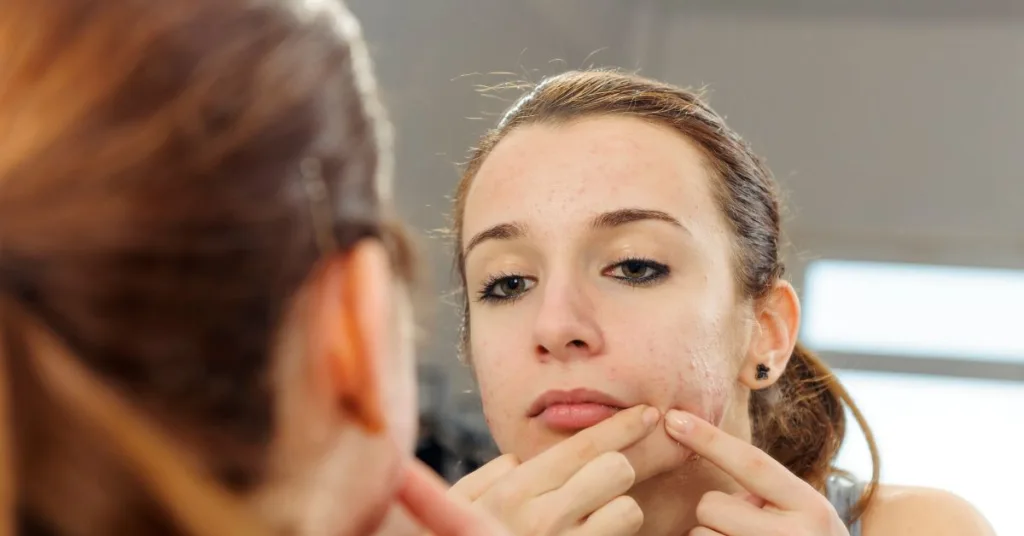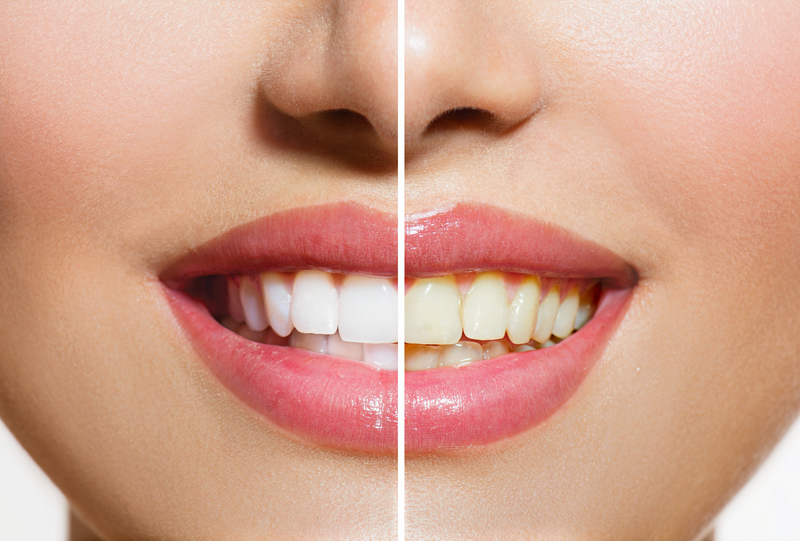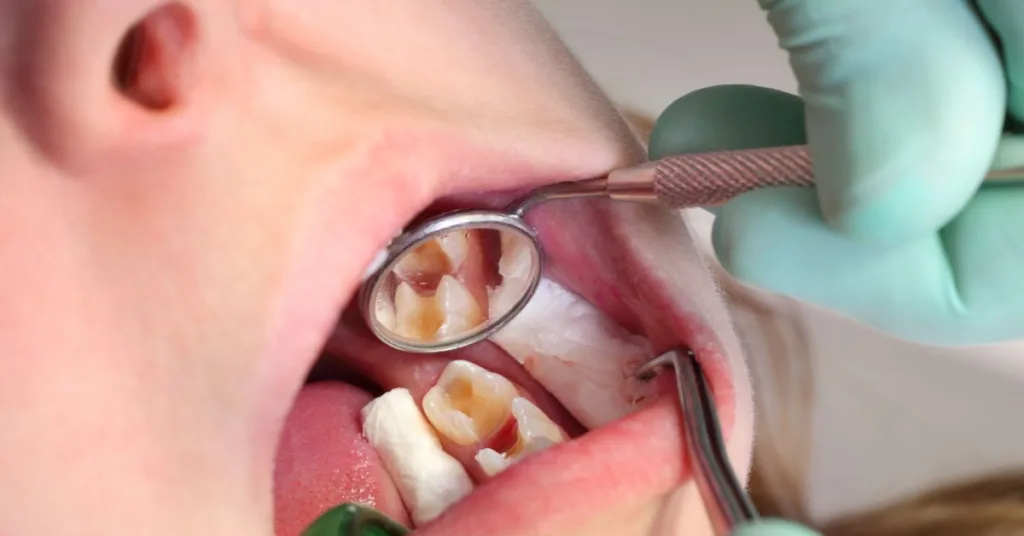toothpaste does work to clean teeth. It is important to use a pea size amount of toothpaste on your toothbrush. The fluoride in toothpaste helps to prevent cavities and keep teeth strong.
If you’ve ever wondered whether toothpaste actually works, the answer is a resounding yes! Toothpaste is an important part of your oral care routine and helps to remove plaque, bacteria, and stains from your teeth. While it’s not necessary to use a special whitening toothpaste, there are many formulas available that can help to brighten your smile.
Be sure to choose a toothpaste that contains fluoride, as this will help to protect your teeth against cavities.
Does whitening toothpaste work? – Medical Myths
Brushing Without Toothpaste Study
A recent study has found that brushing your teeth without toothpaste may be just as effective at reducing plaque and gum disease as using toothpaste. The study, which was conducted by the University of Florida, looked at a group of people who brushed their teeth with water, another group who used toothpaste, and a third group who didn’t brush their teeth at all. The researchers found that there was no significant difference in the amount of plaque or gum disease between the three groups.
While this study provides some interesting information, it’s important to keep in mind that it is only one small study and more research is needed to confirm these findings. Additionally, the American Dental Association still recommends using toothpaste when brushing your teeth. So if you’re looking to reduce plaque and gum disease, continue to use toothpaste when brushing your teeth but know that you may not need as much as you think!
Does Toothpaste Actually Work to Remove Scratches
While there are a number of ways to remove scratches from your glasses, toothpaste is one of the most popular methods. But does it actually work?
The short answer is yes, toothpaste can help to remove scratches from your glasses.
However, it’s important to note that not all toothpastes are created equal. In order to get the best results, you’ll want to use a toothpaste that contains abrasives. These abrasives will help to wear away at the scratch, making it less visible.
Of course, you don’t want to use just any old toothpaste. Abrasive toothpastes can be harsh on your lenses and may even cause more damage than good if used incorrectly. For this reason, it’s important to consult with your eye care professional before using this method.
They can advise you on which type of toothpaste is best for your particular lenses and how to use it without causing further damage.
Does Toothpaste Actually Work on Pimples?
Pimples are a pain, and anyone who has ever had them knows that you’ll try just about anything to get rid of them. So it’s no surprise that one popular remedy is toothpaste. But does it actually work?
The short answer is: maybe. Toothpaste contains ingredients like baking soda, hydrogen peroxide, and menthol which can dry out pimples and make them less noticeable. However, these same ingredients can also irritate your skin, so it’s important to use a gentle formulation if you decide to give this method a try.
Toothpaste won’t cure your acne, but it may help to temporarily reduce the size and redness of pimples. If you do choose to use toothpaste on your pimples, be sure to apply it only to the affected area and wash it off as soon as possible afterwards. And remember: don’t pop your pimples!
The Truth About Toothpaste
When it comes to toothpaste, there are a lot of myths and misconceptions floating around. Today, we’re setting the record straight and sharing the truth about toothpaste.
Myth #1: All Toothpastes Are the Same? Wrong! There are actually a variety of different types of toothpastes on the market, each designed for different purposes. For example, some toothpastes are meant for people with sensitive teeth, while others are formulated to whiten teeth. So before you buy just any old tube of toothpaste, be sure to read the labels and choose one that’s right for you.
Myth #2: You Shouldn’t Swallow Toothpaste This one isn’t necessarily true.
While it’s not advisable to swallow large amounts of toothpaste (due to the fluoride content), swallowing a little bit here and there is perfectly fine. In fact, most kids actually ingest small amounts of toothpaste on a daily basis without any ill effects. Just be sure to teach your kids how to properly spit out their toothpaste after brushing.
Myth #3: Fluoride Is Dangerous Fluoride is a naturally-occurring element that can be found in water, soil, and even plants. It’s also been added to many municipal water supplies as a way to help prevent cavities (fluoridated water is estimated to reduce cavities by up to 25%).
As for whether or not fluoride is safe, the verdict is still out – but most dental professionals believe that it poses no real threat when used in small quantities (like in toothpaste).
5 Benefits of Toothpaste
Toothpaste is one of those products that most people use every day without giving it much thought. But did you know that toothpaste can actually offer a number of benefits beyond just keeping your teeth clean? Here are five benefits of toothpaste that you may not be aware of:
1. Toothpaste Can Help Fight Bad Breath or halitosis, which is usually caused by bacteria in the mouth. These bacteria release sulfur compounds which give off a foul odor. Toothpaste can help to fight bad breath by reducing the amount of bacteria in the mouth. Look for a toothpaste that contains an antibacterial agent such as triclosan.
2. Toothpaste Can Help Whiten Teeth – If you’re looking for a way to achieve brighter teeth, toothpaste can definitely help. Many toothpastes contain polishing agents which can remove surface stains from teeth and make them appear brighter and more radiant. For best results, look for a whitening toothpaste that contains hydrogen peroxide or sodium bicarbonate (baking soda).
3. Toothpaste Can Help Reduce Plaque buildup – Plaque is a sticky film of food debris, bacteria and saliva that forms on teeth. If plaque isn’t removed, it can harden into tartar which can lead to gum disease and other dental problems. Regular brushing with toothpaste helps to remove plaque before it has a chance to harden into tartar.
4. Toothpaste Can Help Prevent Cavities – Cavities are holes in the teeth that are caused by decay. They occur when plaque turns into acids that eat away at the enamel of the teeth causing small pits or holes. Toothpastes containing fluoride help to prevent cavities by strengthening the enamel and making it more resistant to acidic attacks.
5. Tooth Paste Soothes Sensitive Teeth. If you have sensitive teeth, then you know how painful they can be when exposed to hot or cold temperatures or even sweet foods. A desensitizing tooth paste containing potassium nitrate helps soothe sensitive nerves in the teeth while also providing relief from pain.
Credit: www.springsfamilydentistrypa.com
Can Toothpaste Repair Teeth?
There are a lot of old wives’ tales out there about how to fix teeth. One of the most common is that toothpaste can repair teeth. Unfortunately, this is not true.
Toothpaste is not designed to repair teeth; it is only meant to clean them. If your tooth is cracked, chipped, or otherwise damaged, you will need to see a dentist in order to get it repaired.
Does Toothpaste Actually Matter?
When it comes to choosing a toothpaste, there are a few things you should take into consideration. First, what is your budget? Second, what are your oral health needs?
And lastly, what do you prefer in terms of taste, texture and fluoride levels?
There are many different types of toothpaste on the market these days. You can find everything from all-natural formulas to those that contain whitening agents.
Some people prefer gels while others prefer pastes. Ultimately, the type of toothpaste you choose is a personal preference. However, there are some general guidelines you should follow when selecting a toothpaste.
If you have sensitive teeth, look for a toothpaste that contains potassium nitrate or strontium chloride. These ingredients help to reduce sensitivity by blocking nerve endings in the teeth. If you suffer from gum disease or gingivitis, look for a toothpaste that contains triclosan or chlorhexidine gluconate.
These ingredients help to reduce plaque and bacteria in the mouth.
If you want to achieve brighter teeth, look for a toothpaste that contains hydrogen peroxide or carbamide peroxide. These bleaching agents will help to remove stains and discoloration on the teeth.
Be sure to follow the directions on the package carefully when using these products so you don’t damage your enamel with too much exposure to the bleaching agent.
Does Toothpaste Actually Prevent Cavities?
When it comes to preventing cavities, there is no one-size-fits-all answer. The best way to prevent cavities is to brush your teeth twice a day with fluoride toothpaste, floss daily, and visit your dentist regularly. However, even if you do all of these things, you may still be at risk for cavities.
Toothpaste does help prevent cavities by strengthening tooth enamel and making it more resistant to decay. Fluoride is the key ingredient in toothpaste that helps protect teeth from cavities. When used properly, fluoride toothpaste can reduce the risk of cavities by up to 40%.
However, it’s important to remember that brushing alone will not completely prevent cavities. Flossing and visiting the dentist are also important in maintaining good oral health and preventing cavities.
Does Toothpaste Make a Difference?
When it comes to toothpaste, there are a lot of factors that go into whether or not it will be effective. The ingredients in toothpaste can make a big difference, as well as how often you brush and floss. The most important ingredient in toothpaste is fluoride.
Fluoride helps to prevent cavities by making the enamel on your teeth more resistant to acid. It also helps to remineralize teeth that have already been damaged by acids. There are other ingredients in toothpaste that can also be beneficial, such as abrasives that help to remove plaque and bacteria from your teeth.
Some toothpastes also contain enzymes that help break down plaque and bacteria. It’s important to remember that no matter what kind of toothpaste you use, it’s only going to be effective if you brush and floss regularly. Be sure to brush at least twice a day for the best results!
Conclusion
There’s a lot of debate on whether toothpaste is actually effective. The verdict is still out, but there are some things that we do know. Toothpaste does contain fluoride, which has been shown to be effective in preventing cavities.
It also helps to remove plaque and tartar from teeth. However, it’s important to note that toothpaste alone can’t guarantee perfect dental health – you’ll still need to brush regularly and floss daily.


